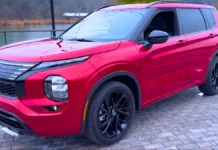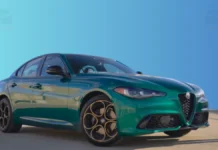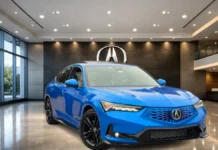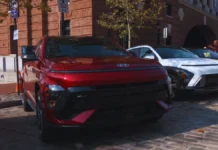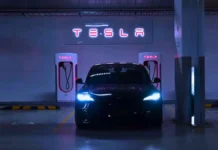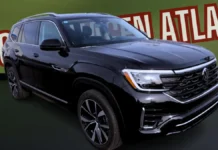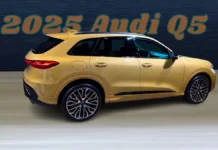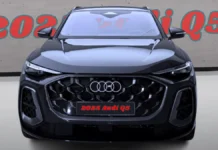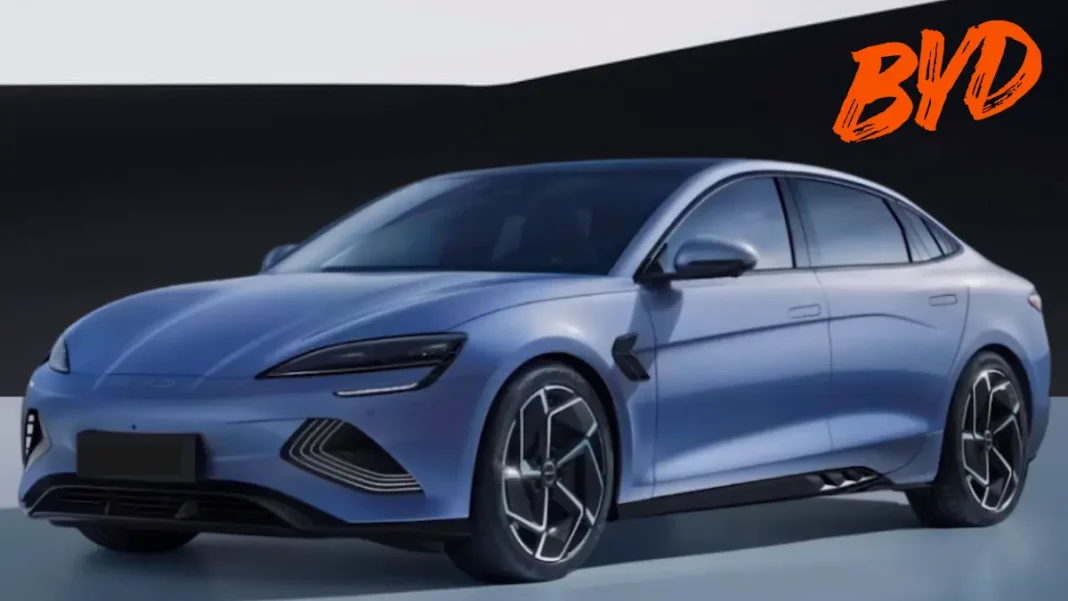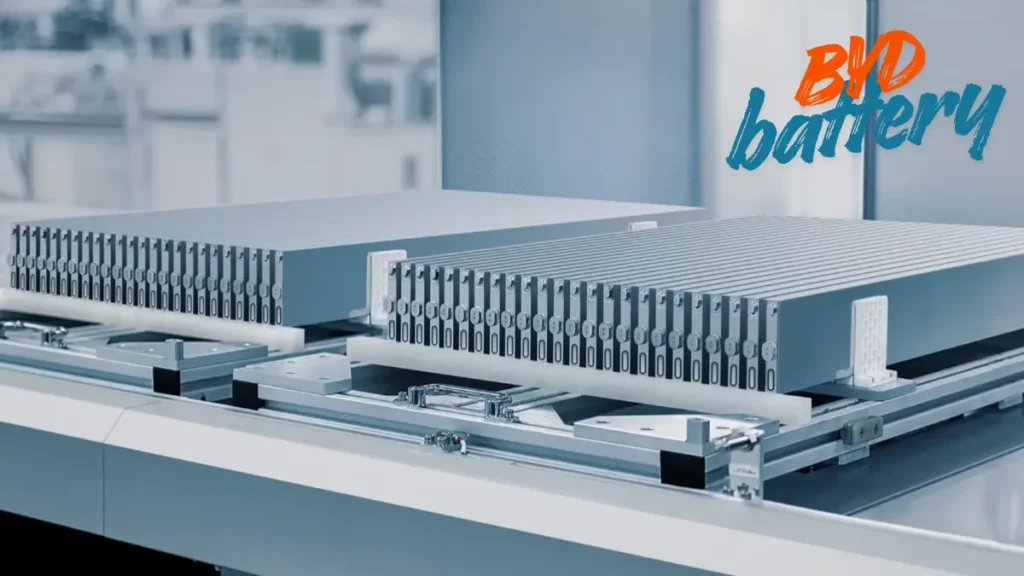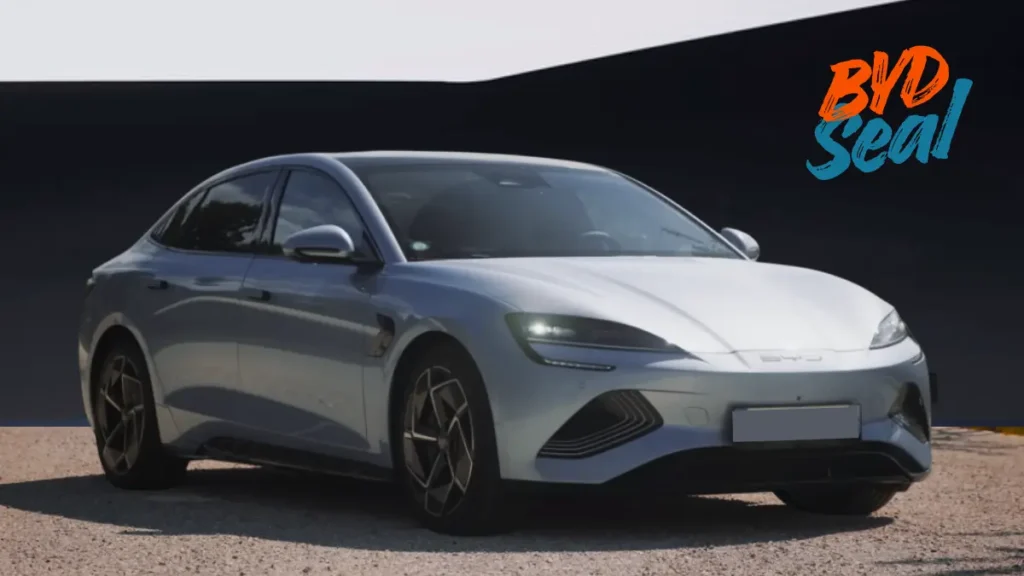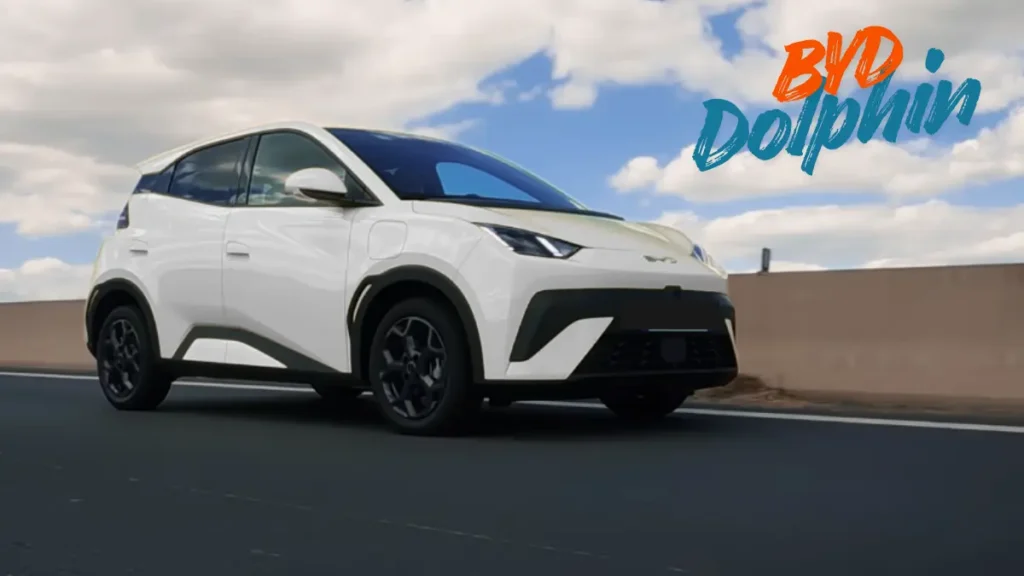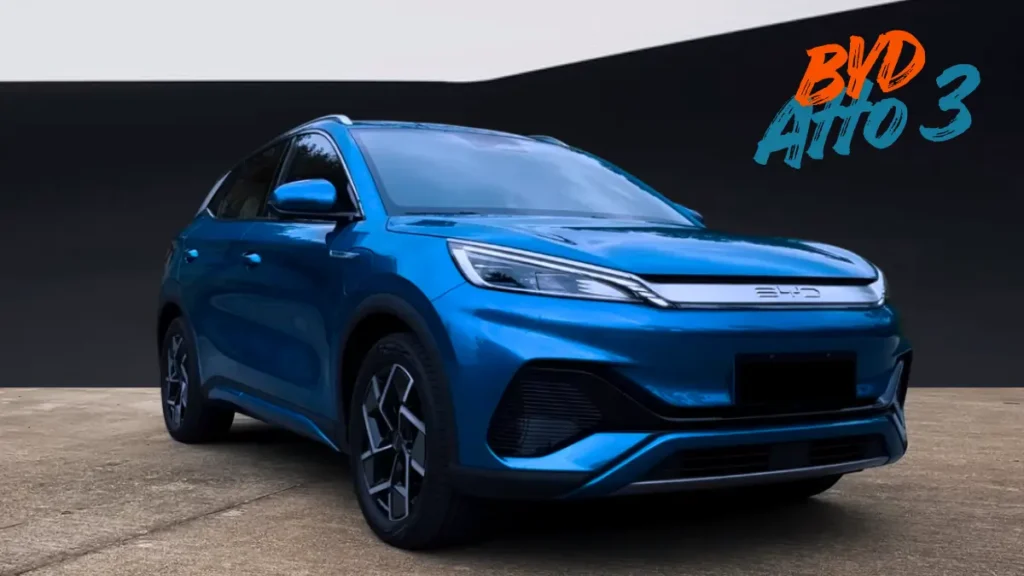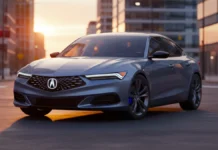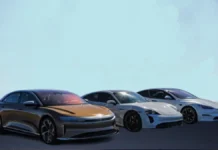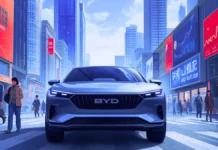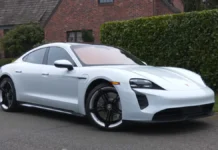The electric vehicle revolution has transformed how we think about transportation, and Chinese automaker BYD (Build Your Dreams) has emerged as a dominant force in this transformation. As the world’s largest electric vehicle manufacturer, BYD has captured global attention with its competitive pricing and innovative battery technology. But the critical question remains: Is BYD electric car reliable?
This comprehensive analysis examines real-world owner experiences, expert evaluations, warranty coverage, and technical specifications to provide you with an honest assessment of BYD’s reliability in 2025.
Contents
- BYD Cars Reliability: Real Owner Experience in 2025
- BYD’s Market Position: A Global EV Leader
- Owner Satisfaction: What Real BYD Drivers Say
- Expert Assessments: Independent Testing Results
- The Blade Battery: BYD’s Reliability Cornerstone
- Warranty Coverage: BYD’s Commitment to Quality
- Model-Specific Reliability Insights
- Challenges and Considerations
- Long-Term Ownership Outlook
- Comparison with Competitors
- Recommendations for Potential Buyers
- FAQs: Is BYD electric car reliable
- The Verdict: Is BYD electric car Reliable?
BYD Cars Reliability: Real Owner Experience in 2025
When evaluating BYD reliability, real owner experience matters more than marketing claims. Across multiple markets, BYD electric car reliability has proven strong in daily use, particularly in battery durability and build quality. The key question for long-term buyers remains: are BYD cars reliable long term, especially as the brand continues expanding globally?
BYD’s Market Position: A Global EV Leader
Before diving into reliability, understanding BYD’s position in the automotive industry provides important context. BYD has overtaken Tesla in global pure electric vehicle sales through the third quarter of 2025, with cumulative sales reaching 1.6 million units compared to Tesla’s 1.2 million units. This represents a substantial lead of approximately 388,000 vehicles.
In the first nine months of 2025, BYD reported global vehicle sales of 3.26 million units, representing an 18.64% year-over-year increase. The company’s overseas expansion has been particularly impressive, with BYD delivering 701,600 units to international markets between January and September, a 132% year-over-year increase spanning 117 countries and regions.
These sales figures demonstrate consumer confidence, but do they translate into reliable vehicles? Let’s examine the evidence.
Owner Satisfaction: What Real BYD Drivers Say
Real-world owner experiences provide the most authentic measure of vehicle reliability. Recent surveys and customer reviews from BYD owners show high levels of satisfaction, with approximately 89% of first-time electric vehicle owners who chose a BYD reporting being happy with their purchase.
Positive Owner Feedback
Many BYD owners praise specific aspects of their vehicles:
Build Quality and Interior: Owners consistently highlight the premium feel of BYD interiors. The quilted leather seats, heating and ventilation features, and overall cabin refinement exceed expectations for vehicles in this price range. The attention to detail in materials and assembly quality rivals established Japanese and Korean manufacturers.
Driving Experience: BYD Dolphin owners report that the vehicle drives smoothly and quietly, with impressive refinement and an overall feeling of stability. The electric powertrain delivers consistent performance without the noise and vibration associated with internal combustion engines.
Technology Integration: BYD vehicles come equipped with comprehensive technology features including bird’s-eye view cameras, advanced driver assistance systems, and intuitive infotainment systems. These features enhance both safety and convenience.
Areas of Concern
However, owner experiences aren’t uniformly positive. Several recurring issues deserve attention:
Customer Service Challenges: Multiple owner reports indicate frustrations with after-sales service. Some customers have experienced difficulties scheduling service appointments and obtaining spare parts, with one owner reporting a three-month wait for a boot lid replacement. This suggests BYD’s service infrastructure in some markets hasn’t kept pace with rapid sales growth.
Logistics-Related Quality Issues: Export vehicles from China have required several fixes and repairs upon arrival at their destination, including issues with mold in European warehouses and paint and plastic peeling complaints in Thailand. These appear to be distribution-related problems rather than fundamental manufacturing defects.
Minor Quality Control Issues: Some owners have reported isolated issues such as radio malfunctions and minor rust concerns on certain models. However, BYD has responded promptly to these issues, with the company covering warranty repairs and insisting on proper rectification.
Expert Assessments: Independent Testing Results
Professional automotive reviewers provide objective evaluations of vehicle quality and reliability.
Safety Performance
The BYD Seal scored a full five stars in its Euro NCAP safety test, with comprehensive standard safety aids including automatic emergency braking, blind-spot detection, active lane assist, front and rear cross-traffic alert, and traffic-sign recognition. This demonstrates BYD’s commitment to occupant protection.
Build Quality Evaluations
Independent organizations and trusted expert groups often test cars for how well they are built and how they perform, with BYD vehicles consistently showing strong results in these evaluations, often scoring above average for their class. This includes battery durability tests, waterproof electrical systems, and impact-absorbing chassis design.
Driving Dynamics
While BYD vehicles receive praise for comfort and refinement, some reviewers note that chassis dynamics lag behind premium competitors. The steering feel and suspension tuning may not satisfy driving enthusiasts, though they provide adequate performance for most consumers.
The Blade Battery: BYD’s Reliability Cornerstone
At the heart of BYD’s reliability story lies its proprietary Blade Battery technology. BYD manufactures its own Blade Battery, a lithium iron phosphate design praised for its safety, durability, and long life cycle.
Safety Advantages
The Blade Battery passed nail penetration tests without emitting smoke or fire, with surface temperature only reaching 30 to 60°C, while a ternary lithium battery exceeded 500°C and violently burned under the same conditions. This exceptional thermal stability significantly reduces fire risk.
The battery also passed extreme test conditions including being crushed, bent, heated in a furnace to 300°C, and overcharged by 260%. This rigorous testing demonstrates the technology’s robustness.
Space Efficiency and Performance
The BYD Blade Battery stacks all cells together, saving over 50% space compared to conventional lithium iron phosphate block batteries. This space efficiency contributes to longer vehicle range without compromising safety or increasing vehicle dimensions.
Real-World Durability
The lithium iron phosphate chemistry used in Blade Batteries offers excellent longevity. These batteries typically maintain higher capacity retention over time compared to nickel manganese cobalt batteries, making them particularly suitable for long-term ownership.
Warranty Coverage: BYD’s Commitment to Quality
A manufacturer’s warranty represents their confidence in product reliability. BYD has significantly enhanced its warranty offerings.
Comprehensive Coverage
BYD now offers a comprehensive 6-year/150,000km bumper-to-bumper warranty along with an 8-year/160,000km battery warranty across its entire vehicle lineup. This warranty has been backdated to cover all vehicles delivered since BYD’s market entry in late 2022, demonstrating exceptional customer commitment.
The power battery pack and drive unit are covered for 8 years or 160,000 km, whichever occurs first, while all other components are subject to a 6-year/150,000km warranty.
Transferable Benefits
BYD’s warranty is transferable, increasing the value of the brand’s vehicles. This provides confidence for both new and used car buyers, protecting the vehicle’s residual value.
Model-Specific Reliability Insights
Different BYD models have varying reliability profiles based on their market maturity and engineering.
BYD Seal
The Seal represents BYD’s flagship sedan competing directly with the Tesla Model 3. While there isn’t extensive reliability data yet for the Seal or BYD as a brand, the generous six-year/93,000-mile warranty and battery’s eight-year/124,000-mile warranty provide reassurance.
The Seal offers officially rated ranges of 354 miles for the single-motor version and 323 miles for the dual-motor variant. Charging speeds reach 150kW, enabling 10-80% charging in under 30 minutes.
BYD Dolphin
Dolphin owners report the vehicle provides 480km of range on a full charge, which is more than sufficient for urban driving. The compact hatchback has proven popular for city commuting and represents excellent value in the entry-level EV segment.
BYD Atto 3
The Atto 3 crossover was BYD’s first model in many Western markets. It has accumulated the most real-world mileage data among BYD’s international offerings. Owner reviews generally praise its spaciousness, efficiency, and family-friendly features, though some have experienced minor quality issues that have been addressed under warranty.
Challenges and Considerations
While BYD vehicles demonstrate strong reliability fundamentals, potential buyers should consider several factors:
Service Network Development
BYD’s rapid international expansion means service networks are still maturing in many markets. Parts availability and technician training levels vary significantly by region. Customers in major metropolitan areas typically experience better service than those in rural locations.
Technology Learning Curve
BYD vehicles incorporate extensive technology features that may overwhelm users unfamiliar with modern EVs. The rotating touchscreen and various driver assistance systems require time to master fully.
Price War Impact
Over 4,700 complaints were filed against BYD in China within one week following announcements of feature upgrades and price adjustments, with existing owners feeling they overpaid for their cars. While this doesn’t affect vehicle reliability directly, it reflects market dynamics that could influence future ownership experiences.
Long-Term Ownership Outlook
Predicting long-term reliability for a relatively new manufacturer requires examining multiple factors:
Engineering Fundamentals
BYD’s 27-year history in battery technology provides a solid foundation. The company’s vertical integration—controlling battery production, electric motors, and electronic systems—enables better quality control than manufacturers relying on multiple suppliers.
Manufacturing Maturity
BYD vehicles consistently earn high marks for overall build quality, with experts noting strong materials and good assembly that meet and often exceed expectations in important areas.
Investment in Improvement
BYD’s R&D expenses amounted to 43.75 billion yuan in the first three quarters of 2025, a 31% year-over-year increase, exceeding the company’s net profit by 23.33 billion yuan. This substantial investment in research and development demonstrates commitment to continuous improvement.
Post You May Find Useful
- BYD Electric Car Review
- BYD Surpasses Tesla in Revenue
- Why the BYD Car is Revolutionizing the U.S. Electric Vehicle Market
- Is BYD better than Tesla
Comparison with Competitors
How does BYD reliability stack up against established manufacturers?
Versus Tesla
Both companies achieve high customer satisfaction rates and strong safety scores. Tesla benefits from a more established service network in Western markets, while BYD offers longer warranty coverage and typically lower prices. Both face similar challenges with parts availability for collision repairs.
Versus Traditional Manufacturers
BYD’s battery technology arguably surpasses many traditional manufacturers’ EV offerings. However, legacy automakers benefit from decades of service network development and brand trust. BYD’s rapid improvement suggests this gap is narrowing quickly.
Versus Other Chinese EVs
Among Chinese EV manufacturers, BYD demonstrates superior vertical integration and battery technology. Their Blade Battery represents a significant safety and longevity advantage over competitors using conventional battery chemistries.
Recommendations for Potential Buyers
Based on comprehensive analysis, here are practical recommendations:
BYD vehicles are recommended for:
- Budget-conscious buyers seeking modern EV technology
- Urban commuters prioritizing efficiency over performance
- Environmentally conscious consumers who value sustainable manufacturing
- Families needing spacious, feature-rich vehicles at competitive prices
- Buyers in regions with established BYD service networks
Consider alternatives if:
- You require extensive service network access in remote areas
- Driving dynamics and performance are top priorities
- You need immediate parts availability for repairs
- Brand prestige significantly influences your decision
- You’re uncomfortable with relatively new automotive brands
FAQs: Is BYD electric car reliable
BYD electric car batteries typically last 15–20 years or up to 1 million kilometers, with most retaining over 80% capacity after 3,000 cycles.
Yes, BYD electric cars are considered highly reliable, benefiting from proven Blade Battery technology and long warranty coverage.
Yes. BYD electric cars have earned five-star Euro NCAP ratings, and their Blade Battery is one of the safest EV batteries on the market.
The main issue is limited service network availability in some international markets, not vehicle reliability.
The BYD Seal is currently considered the most reliable model due to its refined platform and latest technology.
BYD and Tesla offer similar reliability, with BYD excelling in battery safety and warranty, while Tesla leads in software and charging network.
The Verdict: Is BYD electric car Reliable?
After examining owner experiences, expert evaluations, technical specifications, and warranty coverage, the answer emerges clearly: Yes, BYD electric cars are increasingly reliable, especially their latest generation vehicles.
BYD cars are increasingly reliable, especially their latest generation of electric vehicles, with durable battery systems, excellent safety ratings, and expanding service networks proving to be a trustworthy option in the EV market.
The Blade Battery technology provides exceptional safety and longevity. Comprehensive warranty coverage demonstrates manufacturer confidence. High owner satisfaction rates confirm real-world reliability. While service network maturation continues in some markets, the fundamental engineering quality supports long-term dependability.
BYD’s reliability represents a compelling value proposition. These vehicles deliver modern EV technology, advanced safety features, and solid build quality at prices significantly below premium competitors. Minor growing pains with international service infrastructure don’t negate the strong reliability fundamentals evident in the vehicles themselves.
For consumers willing to embrace a newer automotive brand, BYD offers reliable, well-engineered electric vehicles backed by industry-leading warranty coverage. The combination of proven battery technology, strong safety performance, and high owner satisfaction makes BYD a legitimate contender in the global EV marketplace.
As BYD continues expanding globally and refining its service operations, reliability should only improve. The 2025 truth about BYD electric car reliability is decidedly positive—these vehicles represent a credible, dependable choice for electric mobility.
Overall, real-world data suggests that BYD electric car reliability is strong enough to support confident long-term ownership.

